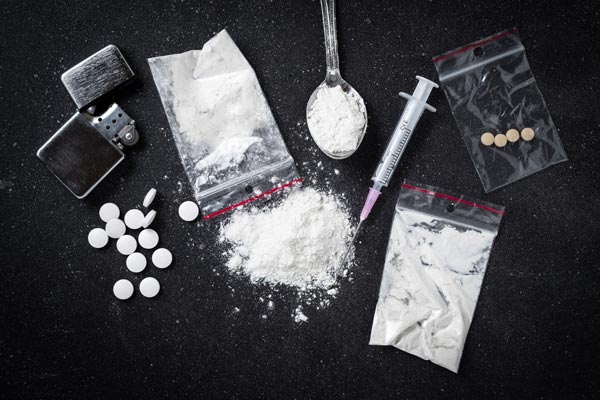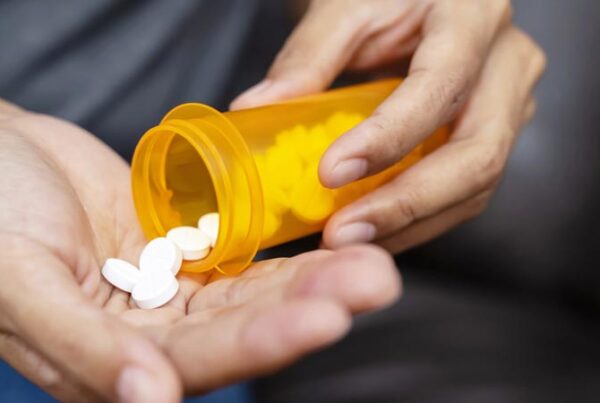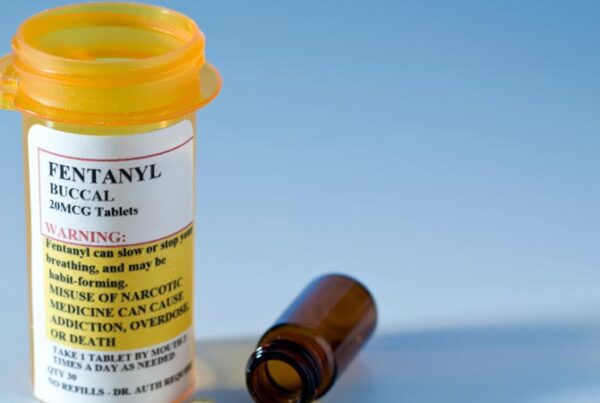Often, the fear and stigma associated with meth and meth use can get in the way of having productive conversations about the drug, what it can do to you, and how to deal with meth addiction.
But, without the fundamental facts about a drug, people can be in much more danger. Not only the danger that they will consider using it and become addicted but also the risk of overdose and withdrawal.
This article aims to inform you if you or someone you care about is using meth and wants to stop. We’ll talk about how long the drug can stay in your system, what you should expect during withdrawal, how long it takes to get meth out of your system, and more.
We’ll also talk about ways to get help overcoming a meth addiction because there’s nothing wrong with needing extra help when dealing with something as complex and difficult as an addiction.
Remember, the more information you have, the better prepared you are.
For this article, we’re going to assume that you already know some of the basics about meth, like what it is, why people use it, and the potential signs and symptoms of meth use. Then, we’ll focus on withdrawal, how long it takes to get meth out of your system, and what to expect.
Let’s take a closer look.

How Long Does Meth Stay In Your System?
Methamphetamine is a stimulant that boosts energy and a rush of good feelings, but the duration of the high from meth isn’t necessarily the same as how long meth stays in your system. Like most drugs, methamphetamines stay in your system for quite a while after you stop feeling the effects of the drug.
So, in most cases, your body will contain the highest concentration of meth within 2-4 hours of swallowing the drug and reach the highest concentration within minutes if you use other methods.
But the drug is typically detectible in urine for up to a full week [1] after using meth, which means that the drug is still in your system for at least that long.
That said, you aren’t necessarily feeling the effects of the drug for nearly that long. Meth highs last minutes to hours, depending on how you take the drug, how much you take, and whether you continue.
After the high, most people also experience a crash. That crash doesn’t happen because the meth is leaving your body but rather because it’s no longer actively working in your body. Feelings of withdrawal may begin long before meth is out of your system, and cravings may persist for a long time after your body is completely clear of the drug.
How Do You Get Meth Out Of Your System?
Many people who start looking for how to get meth out of their system are hoping for miracle cures that will let them pass a drug test with flying colors in a matter of days or hours.
Unfortunately, there is no miracle to remove the meth from your system. Your kidneys and liver need time to filter your blood effectively, and not all of the meth in your body will enter your bloodstream simultaneously. That means that filtration and clearing your body of the traces of the drug will take time.
In some cases, you may be able to speed up the process slightly by drinking plenty of water (preferably with electrolytes added, like in Gatorade or Propel), but it’s not going to make a huge difference in the timeline.
You’ll still test positive for meth for about a week after use, even if you drink lots of hydrating drinks.
Drinking too much water, taking ‘detox’ teas and supplements, and using other techniques to try and get a clear drug test sooner than that aren’t ineffective; they can be dangerous and may make actual recovery harder.
Even just drinking too much water can cause problems if you aren’t getting enough food and electrolytes at the same time, and drinking far too much can even cause medical problems like hyponatremia.
What Is Meth Withdrawal Like?
The good news about meth withdrawal is that we understand this kind of withdrawal, and it follows a predictable pattern that healthcare professionals and patients can anticipate.
Knowing what to expect as you go through meth withdrawal can make the process easier and help you remember that you will feel better and that the whole withdrawal process is temporary.
That said, you should be prepared that some people have lingering mental symptoms even after the acute withdrawal phase goes away. In some cases, those symptoms, like anxiety, irritability, and depression, may be long-lasting or permanent.
Meth withdrawal typically happens in two phases: the acute phase immediately following stopping taking meth, and the subacute phase where you’re still going through withdrawal. However, the symptoms improve and change as your body returns to normal.
Some meth users also experience a third phase of withdrawal called Post-Acute Withdrawal Syndrome, or PAWS. [2] PAWS can happen with various addictive substances besides meth and is a kind of extended withdrawal phase that can last months. Symptoms are typically much milder than during the acute withdrawal phase, but they can still get in the way of a successful recovery and may get in the way of normal life and normal functioning.
That said, with proper treatment and the support of a doctor or health care team, PAWS is manageable and will eventually improve.
Signs And Symptoms Of Meth Withdrawal
There are many potential signs and symptoms of meth withdrawal, and many meth users have already felt the beginning phases of meth withdrawal as a part of their normal drug use. However, most users take meth again before clearing withdrawal unless they actively try to overcome their addiction.
The most common symptoms of meth withdrawal [3] include the following:
- Anxiety
- Fatigue
- Feeling sleepy
- Insomnia
- Vivid dreams
- Depression
- Psychosis (hallucinations, sometimes delusions, may be similar to meth-induced psychosis)
- Meth Cravings
- Increased appetite
- Carb cravings
- Muscle pains and spasms
- Impulse control problems
Everyone’s experience of these symptoms is unique, and not everyone will experience all symptoms. In addition, some people may have more or less severe versions of each symptom than the average.
You may also feel sick, like you have a cold or the flu, but without typical cold or flu symptoms.
It’s important to be prepared for your dedication to overcoming your addiction to waver through this process. Part of what meth does in your body can make it harder to maintain impulse control and stop the urge to use meth again or to control how much you eat or drink when you have intense cravings.
That means that it’s important to have a support system in place to help ensure you don’t give in to your cravings for meth and that you don’t indulge other cravings in a way that could be dangerous or harmful in the long run.
Timeline Of Meth Withdrawal
Meth withdrawal can be a little more challenging than withdrawing from other drugs because it has a longer typical timeline than most drugs.
The most acute phase of meth withdrawal typically starts within 12-24 hours after your last dose. After that, symptoms will typically increase in intensity for up to a week before starting to taper off in the subacute phase of withdrawal.
Fatigue, cravings, appetite changes, anxiety, depression, and symptoms of psychosis are likely to be their worst during that first week. The second week starts similarly, but symptoms should improve as the week progresses.
In some cases, anxiety and depression may persist at roughly the same levels as the acute phase during the subacute phase.
Meth cravings should start to fade in week 3 and will continue improving through weeks 4 and 5 until they stop entirely.
Meanwhile, fatigue usually improves by week 2, and carb cravings will begin fading in week 3.
If you develop PAWS, typically, you will be able to notice that withdrawal symptoms persist longer than they should. Somewhere in weeks 2 or 3, and by week 4 or 5, it should be clear that you are dealing with PAWS. At that point, it’s important to contact a doctor, especially if you haven’t already, and explain your concerns and ask for options. They may be able to offer medications or additional support that help you have more of a normal life despite having ongoing PAWS symptoms.

How To Get Help Getting Meth Out Of Your System
If you’re looking to get help overcoming a meth addiction, first of all, you aren’t alone. You can do this. Some people are willing, able, and eager to help you get through this and help reclaim your life from meth.
Next, it’s important to have a support system or distance yourself from other people using meth. This part can be hard, but the less exposure to meth use you have, and the more supportive and empathetic people are around you, the easier it will be to stick to this decision and get through withdrawal.
You should also seek medical help to overcome meth addiction. While complications during withdrawal are relatively rare, they can be serious, and relapsing in the middle of withdrawal is incredibly dangerous.
Your primary care doctor should be able to provide resources and local support systems that can help.
If you have tried to overcome addiction before and relapsed, have health complications, or even want a little extra help overcoming your addiction, you should consider going to a dedicated addiction treatment center with expert support and proven treatment protocols.
Does going to a treatment center sound like the right addiction recovery option for you? Then, contact the Heights Treatment Center. We are happy to answer your questions, check and see if we work with your insurance, and go over any details you need to help you feel comfortable getting the addiction treatment you deserve.
Don’t wait; the sooner you call, the sooner you can live life addiction-free.
Sources:
- Swaim E. Healthline. (2022, December 1). How long does meth stay in your urine? Retrieved from https://www.healthline.com/health/substance-use/how-long-do-methamphetamines-stay-in-your-urine 2023, January 27
- Hartney E. Verywell Mind. (2020, March 24). Post-acute withdrawal syndrome after detoxing. Retrieved from https://www.verywellmind.com/methadone-withdrawal-4178352 on 2023, January 27
- Hartney E. Verywell Mind. (2022, October 11). Meth withdrawal: symptoms & treatment. Retrieved from https://www.verywellmind.com/meth-addiction-causes-effects-treatment-5666979 on 2023, January 27





